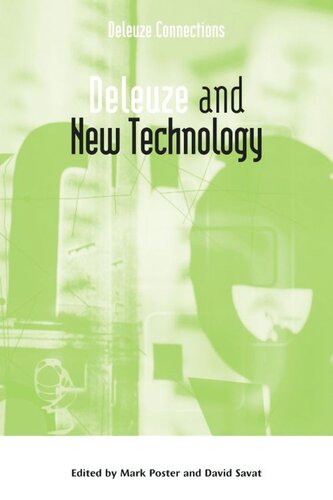

Most ebook files are in PDF format, so you can easily read them using various software such as Foxit Reader or directly on the Google Chrome browser.
Some ebook files are released by publishers in other formats such as .awz, .mobi, .epub, .fb2, etc. You may need to install specific software to read these formats on mobile/PC, such as Calibre.
Please read the tutorial at this link: https://ebookbell.com/faq
We offer FREE conversion to the popular formats you request; however, this may take some time. Therefore, right after payment, please email us, and we will try to provide the service as quickly as possible.
For some exceptional file formats or broken links (if any), please refrain from opening any disputes. Instead, email us first, and we will try to assist within a maximum of 6 hours.
EbookBell Team

4.7
66 reviewsExplores how Deleuze's philosophy can help us to understand our digital and biotechnological futures
In a world where our lives are increasingly mediated by technologies it is surprising that more attention is not paid to the work of Gilles Deleuze. This is especially strange given Deleuze's often explicit focus and reliance on the machine and the technological. This volume offers readers a collective and determined effort to explore not only the usefulness of key ideas of Deleuze in thinking about our new digital and biotechnological future but, also aims to take seriously a style of thinking that negotiates between philosophy, science and art.This exciting collection of essays will be of relevance not only to scholars and students interested in the work of Deleuze but, also, to those interested in coming to terms with what might seem an increasing dominance of technology in day to day living.
Contributors
William Bogard, Abigail Bray, Ian Buchanan, Verena Conley, Ian Cook, Tauel Harper, Timothy Murray, Saul Newman, Luciana Parisi, Patricia Pisters, Mark Poster, Horst Ruthrof, David Savat, Bent Meier Sørensen and Eugene Thacker.